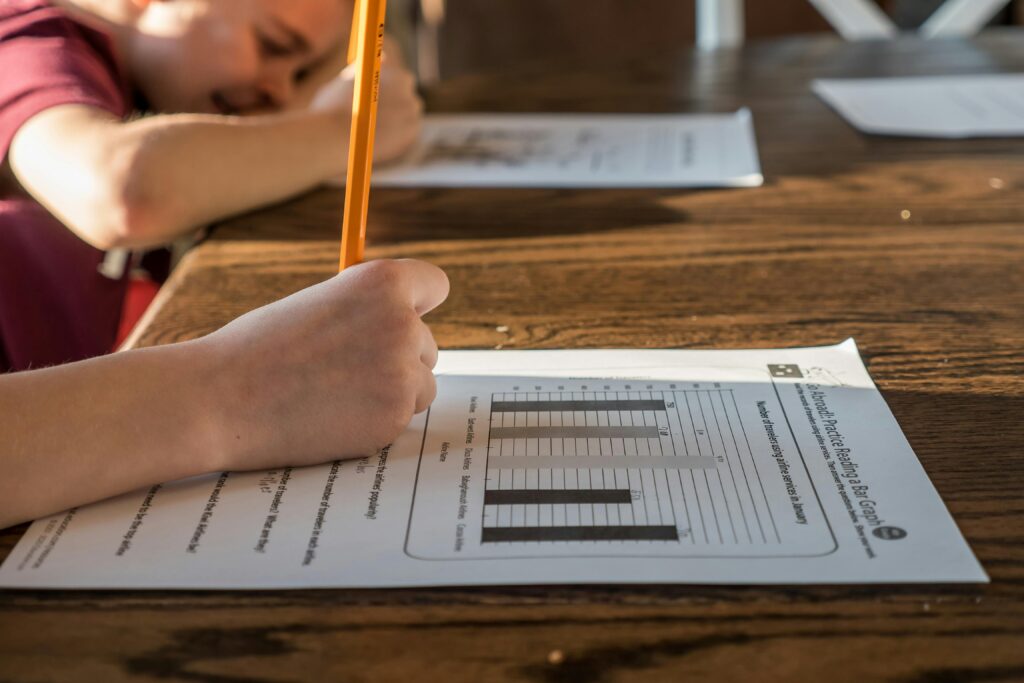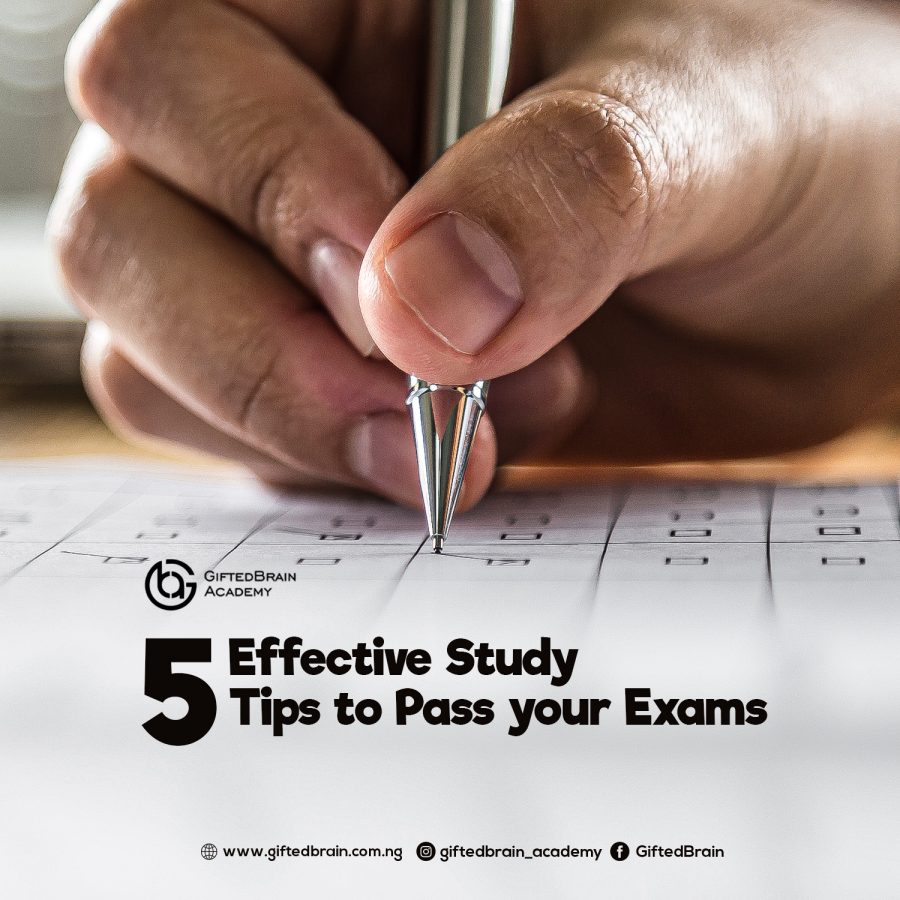As WAEC and NECO examinations are drawing nearer, it is essential that you understand the various study techniques and guidelines on how to pass these examinations in one sitting. Before moving to the tips on how I can study for WAEC and NECO effectively, I will be putting you through the basic information about these bodies and their examinations.
WHAT IS WAEC AND ITS EXAMINATION?
WAEC is an acronym for West Africa Examinations Council, an examining body with members from West African countries (such as Nigeria, Ghana, and Gambia), and together they organize different examinations such as WASSCE, GCE, and the like. However, we are very concerned with the West African Senior School Certificate Examination (WASSCE).
WAEC, which has been in existence since 1952, ensures that the WASSCE is of standard. Therefore, the board deems it fit to ensure all its candidates are provided with some necessary materials such as a WAEC Identity card, a complete WAEC Mathematical set equipped with a scientific calculator, a four-figure table, and so on.

All these materials are given to each school with registered WAEC candidates. Therefore, ensure you are given all these materials before the examination date.
You can visit the West Africa Examination Council Nigeria Homepage at https://www.waecnigeria.org for more information about WAEC as a body.
WHAT IS NECO AND ITS EXAMINATION?
National Examinations Council (NECO) is a Nigerian examination body responsible for conducting general certificate examinations in Education with SSCE included. The Senior School Certificate Examination (SSCE) is a terminal examination for all final-year secondary school students to gain access to the Tertiary institution in Nigeria. NECO, established in 1999 also gives examination tools like the four-figure table and its Identity card to its registered candidate.
WAEC and NECO examinations have Mathematics and English as their compulsory subjects with seven or six other subjects of your choice.
WHICH IS BETTER BETWEEN WAEC AND NECO?
This is one of the most frequently asked questions. I would recommend registering for both examinations. This is beneficial in case there is a deficiency in one of the results, as the other would be a better complement.
However, if you have financial constraints, it is preferable to register for WAEC because the result obtained from the WAEC examination is relevant outside Nigeria, specifically in other West African countries. On the other hand, the NECO result is limited to Nigerian universities alone.
Now to the main purpose of the article:
HOW TO STUDY AND ACE YOUR WAEC AND NECO EXAMINATIONS
To study effectively and ace your WAEC and NECO examinations doesn’t only stop at the preparations before the examinations but also includes what you do during and after the examination. For this reason, the tips I will share with you will be divided into three sections.
Can’t read through all of it, watch this video that summarises all the tips!
PRE-EXAMINATION
The moment you are a senior secondary school finalist, there are 14 things you should start doing to prepare:
1. Get rid of Examination Fright and have a Positive Mindset
When you are in your final year in secondary school, your first instinct when you realize you are in the stage of writing WAEC and NECO is fear. You are probably afraid because it’s not a normal school examination whose syllabus you have covered. You are worried you won’t be able to do well and have other fears. However, to effectively study and ace these examinations, you have to terminate these fears and have a positive mindset that you will do well and pass your examination in one sitting.
When your mindset is positive, the energy to study hard and smart will be available. This concept is known as having a growth mindset; check out our article on how you can develop this kind of mindset.
2. Have your Target Grade in Mind
Another drive to having an effective study and preparation to ace your WAEC and NECO is to have your target grade in mind. The level of grades you aspire to get is directly proportional to the amount of effort and your driving passion to study smart and hard for your examinations. This is an important key.
3. Know the Subjects you are registering for
It is important that you know the subjects you are registering before you start gathering materials for reading.
4. Gather all your Notes starting from your SS1
Many people make the mistake of ignoring their previous senior secondary school notes when preparing for external examinations such as WAEC and NECO. The examination questions are not sourced from outside what is taught in school. Rather, they are sourced from the various teachings from SS1 to SS3. Most of the time, most of the questions are from SS1 and SS2 notes. Moreover, your notes give you a better understanding because you are already familiar with them. So, you can see why it is important to retrieve them.
5.Get Textbooks and Past Questions for each Subject you registered
While you have successfully gathered all your notes, you must get standard textbooks to back them up because your notes, due to either time or lack of teachers, are not detailed enough to cover the whole WAEC or NECO syllabus. Apart from this, textbooks contain broader explanations and examples. When your textbooks are set, get past questions. Get past questions of WAEC and NECO from your seniors, starting from those of five years ago to the year before. Also, past questions are now available with answers compiled together like a textbook. These could be purchased or collected from your seniors. Below are some recommended textbooks for some subjects (Apologies, I am a science students so most of the subjects would be science based);
Mathematics: The Essential mathematics textbook and New General Mathematics textbooks (SS1-SS3).
English language: Get the required novels to be read and any English textbooks that are rich in Oral English, Essay writing and Comprehension such as A1 on English textbook.
Physics: New School physics, Essential physics textbook and some practical textbooks.
Chemistry: Essential Chemistry, Understanding chemistry textbook and some practical textbooks.
Biology: Essential Biology, Lamlad Biology textbook and some practical textbooks.
TONAD past question brands are popular for their past questions and answer compilation.
6. Get the Syllabus
The WAEC and NECO syllabus for the year is important to navigate your reading. This can be obtained online or through your school. Note that the WAEC and NECO syllabus has some changes each year, so make sure you have the syllabus for the year of your examination.
7. Understand your reading time and Mode of Assimilation
Yes! You need to understand what time you assimilate better and the method you can use to assimilate better. Some people can only assimilate during the day, and some at night. Also, based on the method of learning, some understand well when they watch videos related to the topic or listen to the audio version of the topic. This refers to the different learning styles we have. You can take our assessment to find out your learning style.
When you understand these things, it will be easy to make your reading schedules without clashing with the time you need to do your house chores and some necessary duties.
8. Start the Reading Now!
Exactly, you read that right. Start reading now! This is also for any student who is presently in SS2. WAEC and NECO examinations are not hard; the problem is that we start reading very close to the examination. This, however, will not be of help to you because of the bulky syllabus you have to cover. Immediately after you have gotten all your materials ready, you should start reading. As a matter of fact, you should cultivate the habit of reading regularly; you can start with these 7 reading habits.
9. Discipline and Time Management
What breeds a successful goal or great achievement is discipline and time management. You have now understood your bearing and what you want, then you have to learn to cut off unnecessary activities such as excessive movies, excessive playing and pressing of phone (except for reading) and so on. For time management, learn to make a table for reading and strictly follow it. Do your house chores and errands quickly and go back to reading. For more information, read our article on 5 skills for effective time management, to help you better understand how to manage your time.
10. Have a Tutor
To ace your examination, you might have to get a tutor. This can be someone whom you know to be proficient in the subjects you are registering for and understands WAEC and NECO modes of setting questions, marking scheme and other important details about the examinations. He/she should also be able to give you assignments for each lesson you have. If you are not given an assignment, you should ask for it. Generally, the importance of tutoring cannot be overemphasized, so if it is something you can get, please do.
11. Surround yourself with Studying stimulators
It is time to cut short friends who never ginger you to read! At this point, you have to get friends who are very much interested in acing their examinations too and are working towards it. With this, there would be a sharing of knowledge and better understanding.

12. Get the Time table and draft out your subjects
Another blunder most students make is that they do not get the examination timetable early, and when they do, they don’t draft out their subjects. Immediately you get your timetable, the first thing to do is to write out your subjects based on the date and time you will be having them. This would form your timetable and prevent the mix-up of time, date, or omitting a particular subject.
The WAEC 2024 timetable is out and you can get it here. Ensure to check where your subjects fall and draft them out.
13. Participate in the Mock Examinations
The mock examination is a pre-examination with the same format as the real examination. When you take a mock examination, it tends to reduce your tension, and your result tends to indicate how prepared you are for the real examination. This way, you can understand where you are lacking.

14. Be in Good Health
As you study smart and hard, don’t forget to take good care of your health. Eat well and not too much, exercise, stay hydrated, and consume fruits like bananas, especially hydrating fruits like watermelon. This will help boost your studying capacity and rate of assimilation.
You can check our post on foods that improve the brain to get started.
DURING EXAMINATION
Now that you have prepared well for the examinations, are you totally safe? No. Even after so many preparations, a wrong move during your paper can jeopardize your months of preparation. However, to avoid this, I have prepared 8 precautions and tips for you to get it right during the examination.
1. A day before the Examination, Sleep well
When it is a day before your examination, ensure you revise and sleep early and well. Of course, this might seem impossible, especially when you haven’t been reading. But if you have followed my earlier tips, then this is just okay for you. When your brain gets enough rest, it can accept, analyse and give results quickly.
2. Wake up Early
On the examination day, wake up early, pack all the necessary materials for the examination, and be at the examination hall thirty minutes (30 minutes) before the scheduled time. This will help you to be more composed and settled.
3. Relax your Mind
After you have completed the necessary registration and have been assigned a place to sit, relax your mind. There is no need to be afraid or anxious. A better way to do this is to breathe in and out gently, lay your head on your table, and meditate (you can say words of prayer and make positive affirmations).
4. Fill in necessary Information and Read the Instructions before you Start
Immediately, you are given your answer booklet, question, or both, it is not the time to panic or rush to start answering. Relax your nerves and read the instructions carefully. Fill in your name and other necessary information requested in the order you are instructed on your answer booklet. Afterwards, move to reading and understanding the question instructions.
You are still not yet done. You have to also read through all the questions you have and understand them properly before you move to answer your questions.
5. Start with the Question you know best
This is why it is important to read through all of your questions before answering. It will give you an overview of the questions and the ones you have full knowledge of. When you answer the question you know best, it prevents wasting time, gives you the energy to continue, and gives the marker in charge of your script the impression that you know what you are doing. I can say that it is a way of positively attracting the marker to your work.
6. Be Time Conscious yet Accurate
As you take precautions, remember that you have limited time. Take note of your time, be fast, yet ensure you are not writing the wrong things. Time management is important so that you would be able to finish up your questions. If you are stuck on a question, leave it, give enough space for it, and continue with the next question. Don’t sleep on a question.
7. Write Clearly and Smartly
No matter how brilliant you are, if what you have written is not visible to the marker, then you have scored zero. Carefully write your letters well and space your sentences out properly without clumping them together. Also, start the answer to each new question on a new page. When you are answering a sub-question, make sure to count four writing lines before you start your answer.
After you have written your question number in its space at the top, it is important to write it again as a centralized heading, clearly stating the sub-question you are answering before writing your answer(s) on the next line in a justified manner.
The picture above shows how your questions should be numbered for clarity. Starting the number 1 question on a fresh page and writing the sub-question number again before answering the question. The writing space where the tyre of the box stops indicates the point where you probably stop writing your 1a answers. To start your 1b, about three wring spaces were counted before writing your sub-question number, then you question 1b answers.
8. Review your work and Bless it
When you are done with your questions, it is important to cross-check your work for any mistakes. Your mistake might be a wrong spelling or omitting a question. It is also a moment to add more to what you have written and to go back and answer the questions you left behind because you couldn’t answer them earlier. Afterwards, ensure you write the number of questions you attempted in the designated space on the front page of your booklet. Finally, bless your work, say words of positive affirmation, and submit.
POST EXAMINATION
Now that you are done with a subject of the examination or all your subjects, it still doesn’t end there. These are 2 things you should do after your papers/exam.
1. Take your Mind off the previous Examination and focus on the next
When you are done with your examination, it is normal to feel either excited because you believe you wrote well, or downhearted because you think you did not do your best. Regardless of the emotions, set them aside and focus on doing better in the next subject. Don’t be too overwhelmed by the emotions of your previous papers.
2. Pray and Hope for the Best
When your examinations are done and dusted as you would say, pray for the best and hope for the best.
I hope you find this article helpful. We wish you success in your exams. Please feel free to ask any additional questions in the comment section, and don’t forget to like and follow our page. Thank you!


